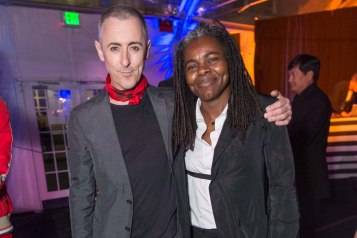
Today, a staggering 350 million individuals worldwide suffer from depression, yet it is a topic seldom discussed. Maybe it is because there is still a social stigma surrounding mental illness; maybe it is because the disease lacks adequate government funding; or maybe it is because there has been virtually no change in basic treatment since the introduction of Prozac more than 25 years ago. Well, philanthropist and former business executive Audrey Gruss is not interested in finding out why—she is razor-sharp focused on figuring out how. How can we eradicate this debilitating disease, which is the number one cause of disability in people aged 14-44, and is on track to become the number one culprit in individuals of all ages by 2030?

In 2006, Gruss created the Hope for Depression Research Foundation [HDRF] in honor of her late mother, Hope, who battled the disease for most of her adult life. “I always thought that she was getting the latest and newest medications, but after she died, I started digging deeper. I just never understood why she did not get totally well,” Gruss explains. “If she was getting all of these different medications, and they were switching them up and trying new things, then why wasn’t she 100 percent as I remember her from childhood? She was funny, she always sang, she loved culture, and she wrote every single day of her life.”
As Gruss continued to do research and meet with different psychiatrists and neuroscientists, she learned that there is no real diagnosis for depression—no personalized approach and no means of prevention for the disease. What’s worse, most medications are simply administered on a trial-and-error basis. “They really do not know what causes depression,” she admits. “Everyone thinks you can either go into therapy or take a pill and you will feel better, but the difficult part is that only about half of the people who should be seeing a doctor even go to one, and only 50 percent of those who take medication even respond to it. So we are really talking about a crisis.”




















